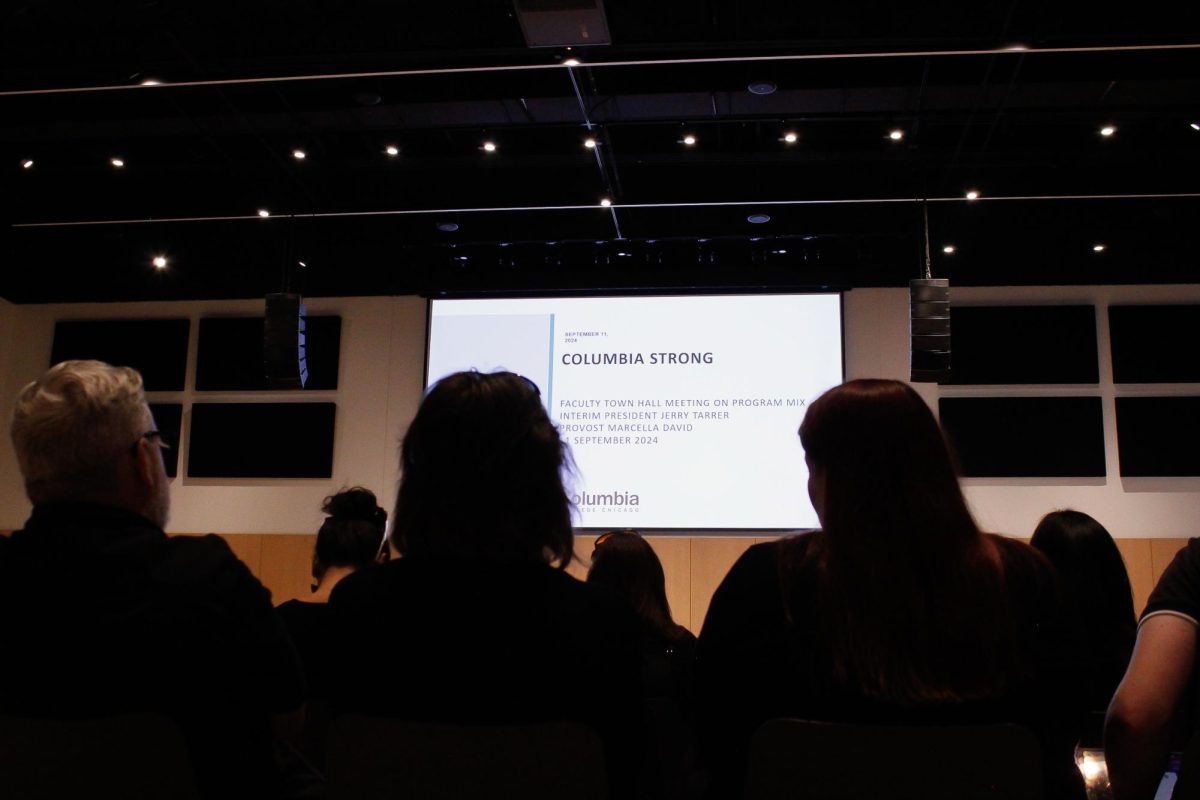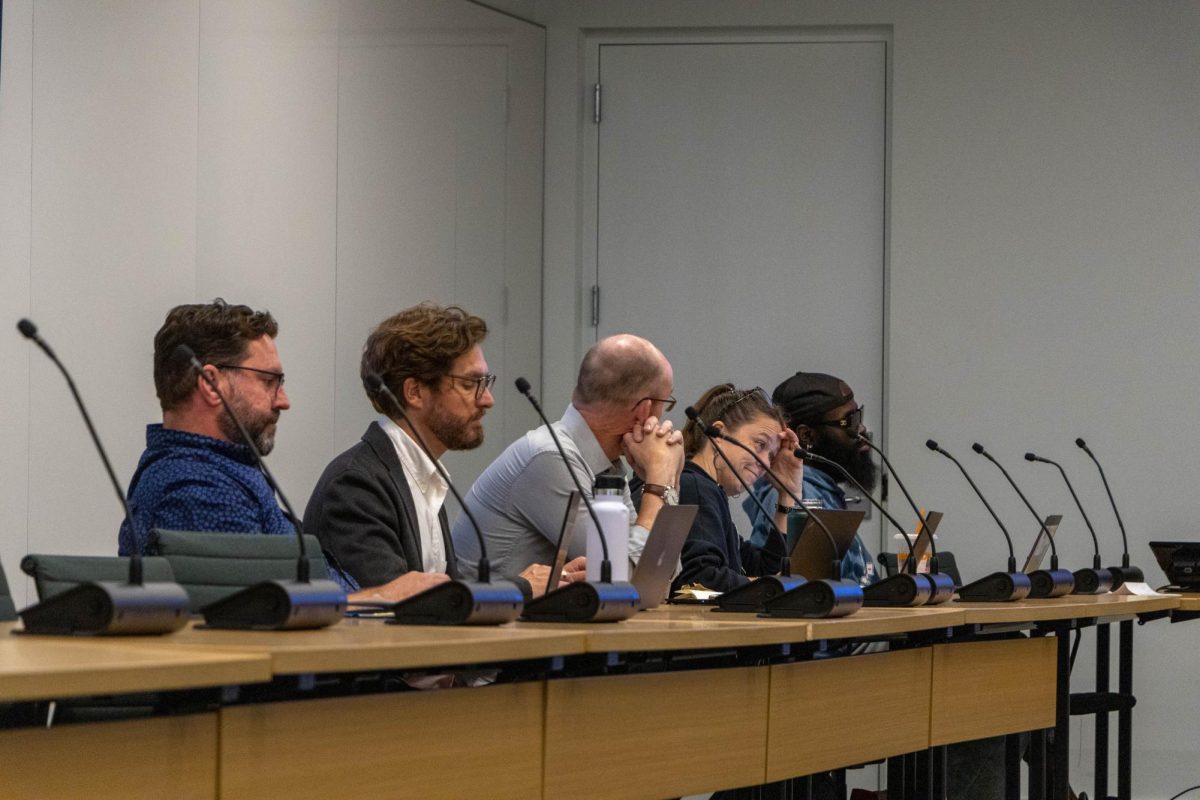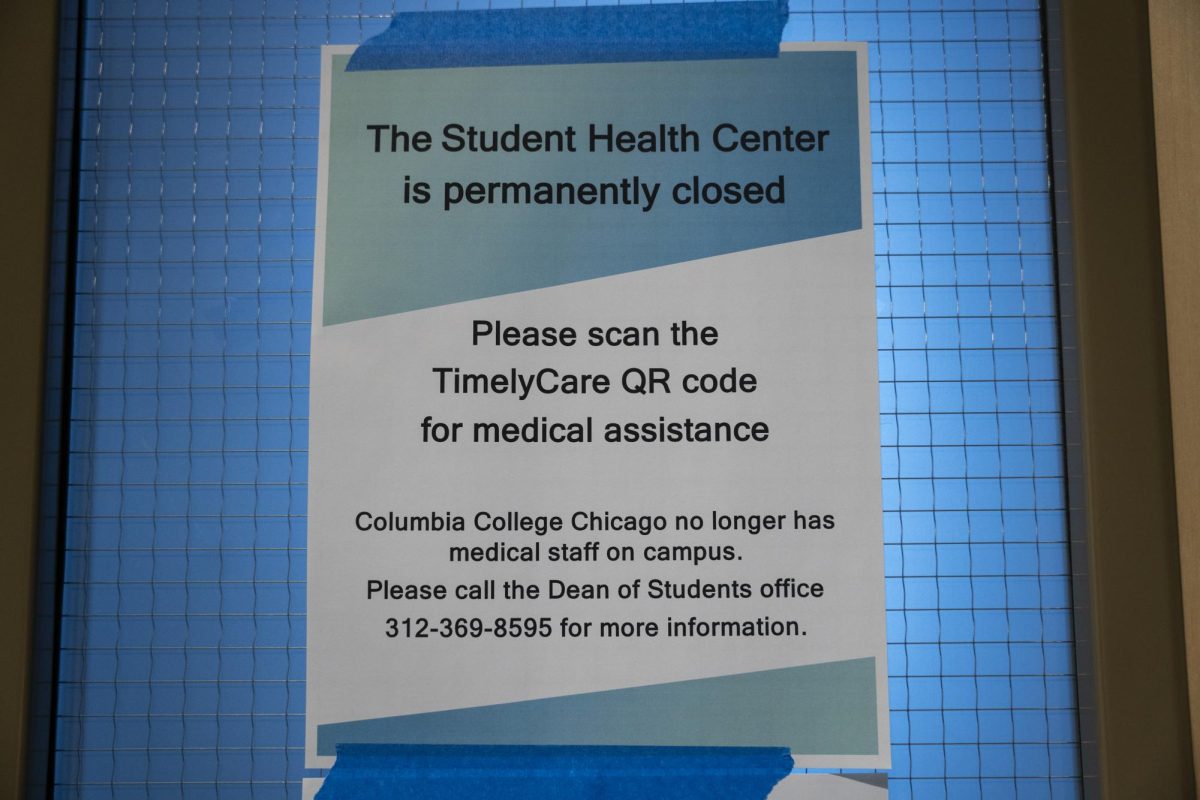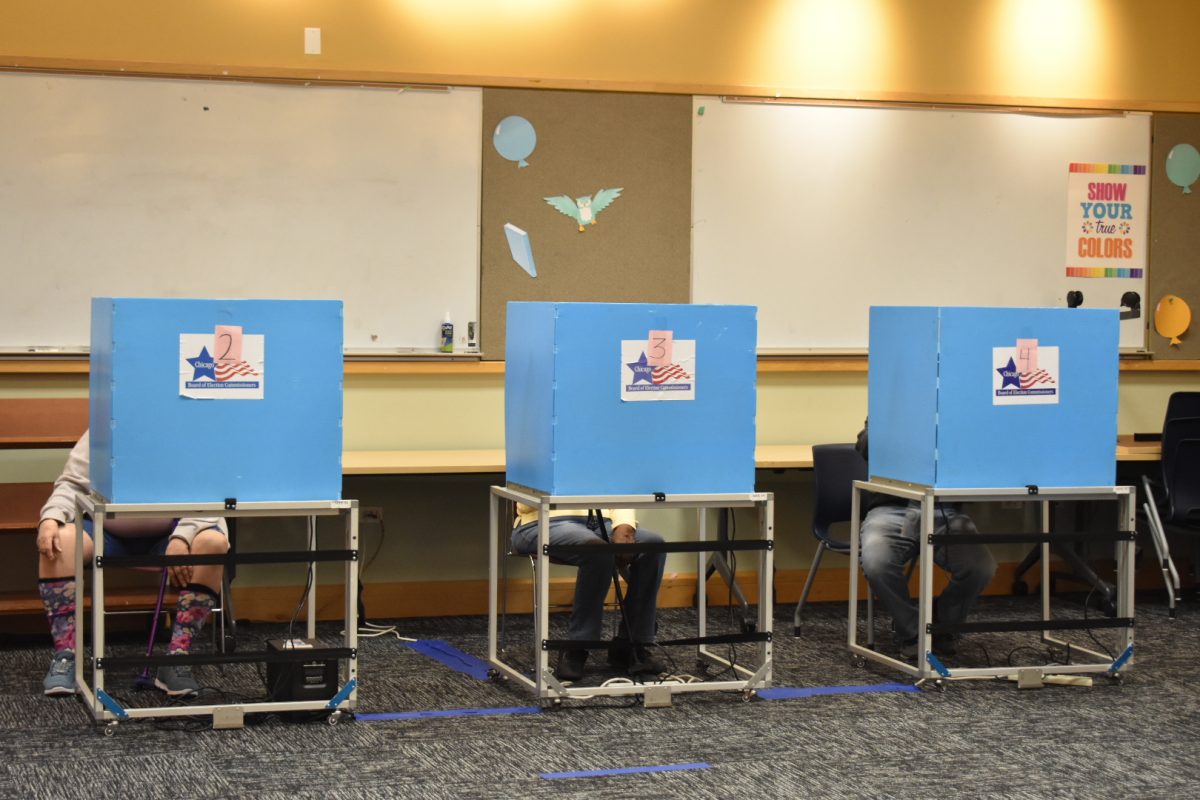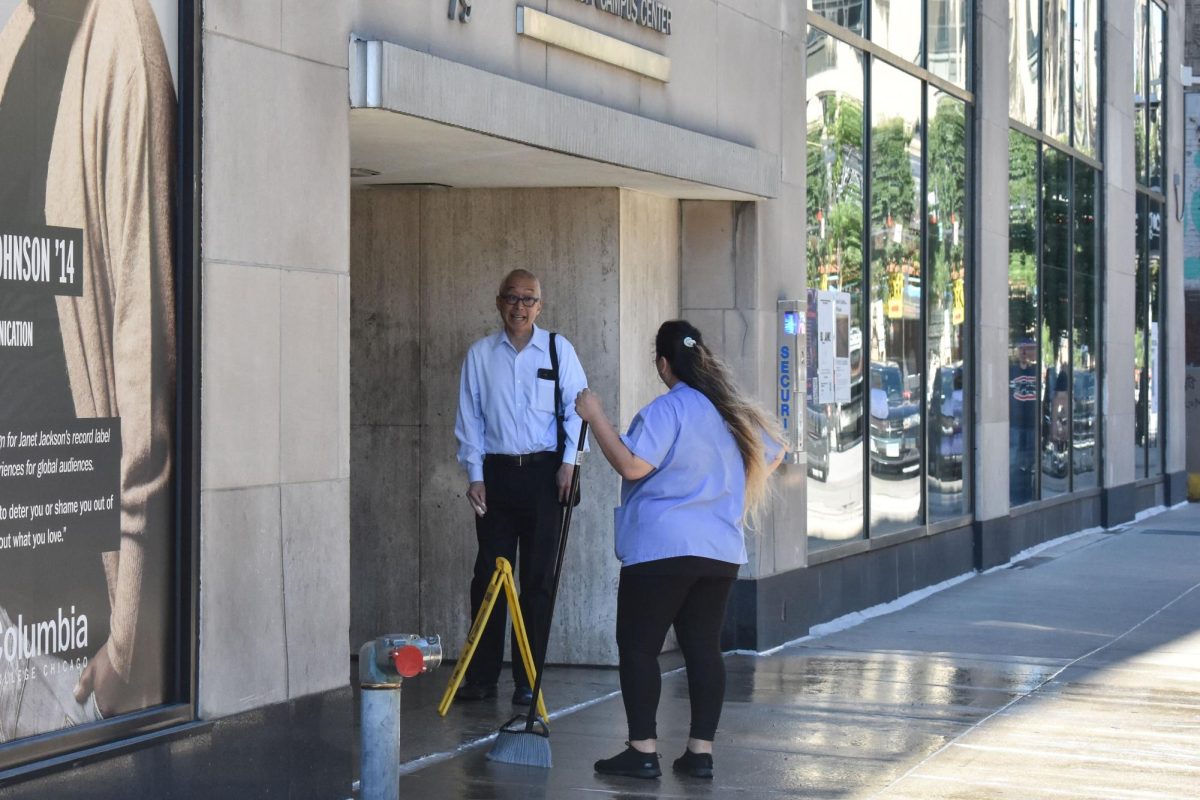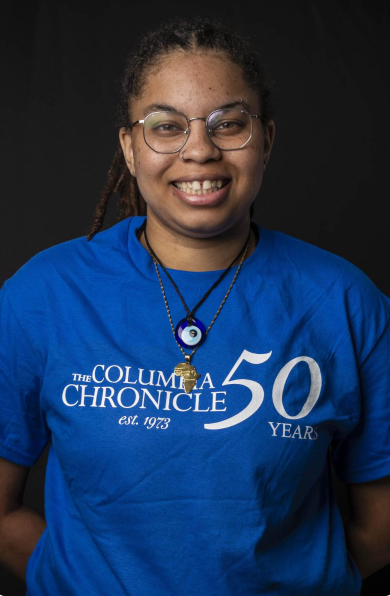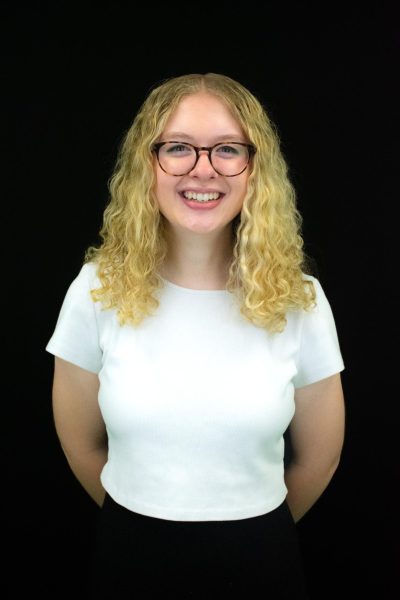Chair to the Board of Trustees John M. Holmes said Columbia must make “bold” changes to curb the college’s looming $38 million deficit.
Faculty and staff have pushed back on the pace of the college’s sweeping proposals to balance the budget, including laying off employees and cutting programs.
But Holmes said big changes are necessary to avoid incremental changes that don’t fix the problem.
“I want to make a bold move now and put ourselves in a position to grow from here,” Holmes said, in an exclusive interview with the Chronicle on Wednesday, April 24. “I want to do the best we can to get the full plan agreed upon and communicated upfront because you don’t want to be in a situation where you make cuts, then more cuts and then more cuts.”
Holmes said the college will need outside help, which is why it is hiring a consulting firm to help with the restructuring, specifically curriculum revisions and a review of academic programs.
He said a contract the college had been negotiating with Chicago-based AlixPartners fell through.
“It’s not going to be Alix, but there are a number of firms out there that we’re talking to that can provide resources,” Holmes said in an exclusive interview with the Chronicle on Wednesday, April 24. “We just want to do it in the most economical way for the college.”
The Chronicle previously reported that the college was negotiating with AlixParnters after the name of the global turnaround firm was announced in a Faculty Senate meeting.
Holmes said it is important for the college to engage with an independent third party because restructuring an institution is an unprecedented and “complicated analysis.”
“We do believe we’re going to need outside help,” Holmes said. “We want to make sure we get this right.”
The college has worked with consultants before, most recently to help calculate DEI efforts and also for Title IX.
Holmes said the college plans to pick a new consultant in time to have an agreement for program revisions by mid-summer.
That is the same schedule outlined by Senior Vice President and Provost Marcella David.
In an email on April 18 to faculty and staff, she said the consultant’s work would be completed during summer break. “Any program terminations will be announced immediately to alert faculty and provide time for planning completion pathways for our students,” she said.
David said in the email that the college had expedited the implementation of some catalog revisions before the start of the 2024-25 academic year.
President and CEO Kwang-Wu Kim is preparing a final advisory report for the Board of Trustees with his recommendations for steps the college can take to address the financial challenges. The report is expected to be delivered next week, on May 2.
The board voted unanimously in favor of starting a process outlined in the college’s “Statement of Policy” to determine if the college meets the condition for “adverse circumstances.”
Such a declaration, which must be approved by the board, allows the college to close or merge programs and lay off full-time faculty with tenure appointments.
In his draft advisory report, Kim recommended the college reduce its core credits to 30 in the fall and sell some real estate. The initial report said the college would remain in “adverse circumstances” until the $38 million financial gap is eliminated.
Between 11 to 13 full-time faculty from the English and Creative Writing, Humanities, History & Social Sciences and the Science and Mathematics departments could lose their jobs under the restructuring outlined in the draft report from Kim.
Remaining in “adverse circumstances” means even more faculty could potentially lose their jobs.
Kim, who is stepping down on July 1, has held listening sessions with the campus community to solicit feedback in preparation for his final submission to the board. The Faculty Senate also prepared a formal response to the draft report that pushed back on the timeline of some of the proposed changes and requested to see more data to help justify the potential cuts.
“We’re still collecting input and ideas,” Holmes said. We’re “looking forward to seeing it all at once in one place on May 2.”
He also said that it’s imperative for everyone involved to have “an accurate appreciation for the situation that we’re in.”
Holmes, who is the president and CEO of AAR Corp., has been on the board for 11 years.
Over this academic year, the board has brought on, or is bringing on, several new board members, despite the lingering financial challenges. He said about four new members have been voted on by the current board.
Holmes said the new members of the board are ready to help address Columbia’s financial problems with their business and financial expertise. One of them is Peter Pace, manager and director of Goldman Sachs in Chicago and a private wealth advisor.
Holmes also said S&P Global’s recent credit downgrade of the college from a BBB+ to a BBB- rating was not a surprise and reinforced that “the financial challenges that we’re facing are real.”
There are some “people out there questioning how real the financial challenges were,” Holmes added. “It’s just validated what we’ve been saying. It just again affirms that the plan that we’re working on is the right thing to do.”
Holmes will not be in attendance for commencement in two weeks due to a work conflict. He was on campus on Wednesday to record a speech for graduates and their families.
“The whole idea is to deliver a better experience for the students that matches what current students want,” Holmes said. “What we’ve learned over the last several years is that the offering that we have today is out of sync.”
What students are saying:
Madison Heiderscheit, a junior film and television major, said she isn’t excited about her last year at the college.
“Going into senior year, it’s weird because I don’t have much to look forward to anymore because I’ve already done all my major film stuff,” Heiderscheit said.
A directing capstone course she wanted to take is no longer being offered.
“I wish for my last year I would have been, like, super excited and looking forward to it,” Heiderscheit said. “But now I just need to get it done to get my degree.”
Adriana Hernandez Almestica, a junior theater major who transferred to Columbia last fall, said she wishes she had known more about the financial situation before committing to Columbia.
She has hope that next year will be better, saying, “I don’t think it’s going to be the end of the world” and stressing that students have options.
“I’m with a lot of people that are younger, they have the opportunity to transfer,” Hernandez Almestica said. “I say, if it’s the right option for you, go for it. But for the people that have been staying here, hopefully, it’s not the end of the world.”
Hernandez Almestica said she wasn’t fazed about the deficit but wished it had been handled sooner.
“Everyone got some debt, small amounts of debt, big debt. But at least we can survive this future. The future is no guarantee, so you might as well just think in the positive.”
Copy Edited by Myranda Diaz
Resumen en Español:
Para ayudar a reducir el déficit de $38 millones, el presidente del consejo de administración John M. Holmes quiere implementar cambios grandes de los programas y de los empleados. Con la ayuda de otras firmas de consultoría, Holmes quiere hacerlo “de la forma más económica para la universidad”. En un correo electrónico de la vicepresidenta senior y preboste Marcella David, dijo que cualquier terminación de los programas se anunciarán inmediatamente. El consejo votó a favor para considerar la universidad de condición adversa, lo que permitiría que persigan su plan de programas y empleados. El Presidente y CEO Kwang-Wu Kim entrega su informe de asesoramiento final el 2 de Mayo.
Resumen en Español por Sofía Oyarzún











